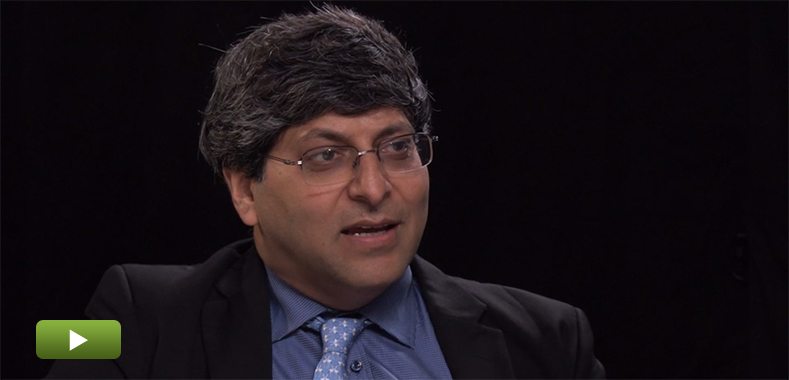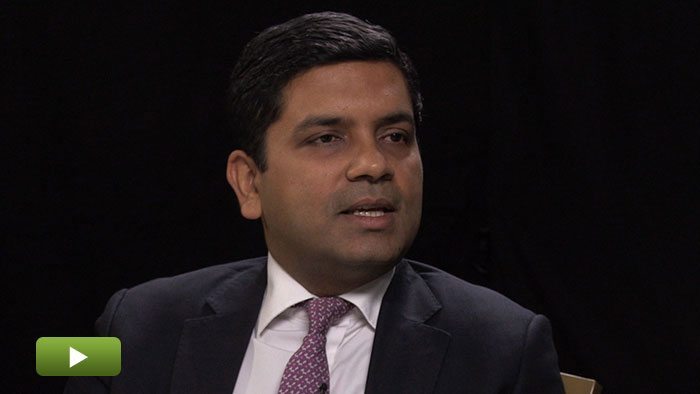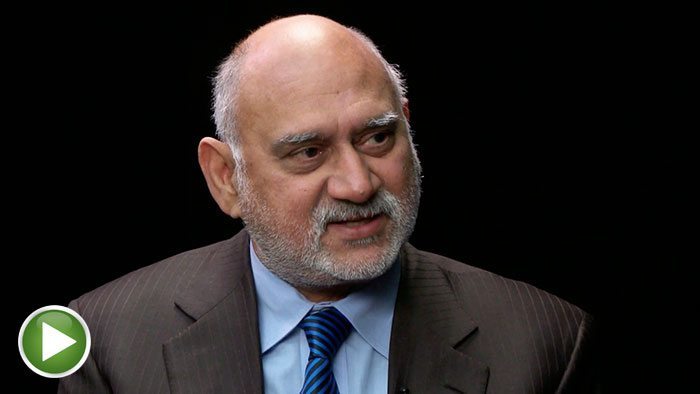PE Gains Traction in India
India’s economy has come a long way in recent years, and private equity is starting to become a more trusted source of capital for businesses. Prashant Purker of India-based ICICI Venture discusses why there’s optimism among PE players in the country, what makes his firm unique, sectors that seem promising, and what the LP makeup is.
Transcript Download Transcript
PE Gains Traction in India
With Prashant Purker of ICICI Venture
David Snow, Privcap: Today, we’re joined by Prashant Purker of ICICI Venture. Prashant, welcome to Privcap. Thanks for being here.
Prashant Purker, ICICI Venture: Thank you.
Snow: Your firm invests in India. It’s a private equity firm based in India. You invest across India. I’d love to hear your insights into how that market is developing and how you see the opportunity unfolding. Why don’t we start in a very obvious place: the macroeconomic condition of India? It’s turned a corner a bit. What’s your insider’s view of the economic conditions in India?
Purker: We are at a very interesting juncture at this moment in the Indian economy. You are right. The bottom has been reached and the turn is definitely there. For example, we have a pickup in GDP, a little bit fine. But I think the overwhelming factor everyone talks about is the Modi factor.
What we find is that we are at a juncture where a business-friendly government—[one] that promotes economic activity, reduces subsidy and makes the private sector much more interesting—is indeed a political, not just acceptable, thing in Indian politics. But is a winning combination.
Snow: Among participants in the Indian private equity market, do people feel optimistic as well?
Purker: I think a lot more people definitely feel optimistic about what the future holds than if you were to look at two years back. That said, it is true that some people still would want a lot more action on the ground to have happen. And, on the ground, the deal volume is up. The exits are up for people. I think even the ease of doing business—there have been certain steps taken that definitely show that we should be getting easier.
Snow: You are a co-head of private equity for ICICI Venture. Talk about what is unique about the ICICI Venture platform and what distinguishes it from other GPs in the market.
Purker: I think one of our strongest distinctions is our legacy. We belong to the ICICI Group. ICICI Bank is the largest private sector bank and the second–largest bank in the country. As a group, we have leadership position in the life insurance, general insurance and other financial services.
What it gives us is a unique ability in access into virtually every entrepreneur and every manager out there, and [we] are able to access that deal. And…that gives us a strong proprietary deal flow. If you look at our last fund, more than 50% deal were proprietary.
Having said that, even as partners—the three partners in private equity—all of us have spent our entire life working in India. India is a market where people must look for a lot of local knowledge.
Snow: What are the sectors you’re looking at now for private equity investment that you are most excited about?
Purker: I think there are some newer flavors we like. There has been a strong buildup of inclusive banking in the last one year, where something like 120 million new saving bank accounts have been opened. The government is planning now and, in fact, things have started to transfer all subsidies rather than giving in kind through price subsidy to transfer as cash transfer. We believe things like this will be big.
We also believe that specialty manufacturing is going to be a good area. And with the new ease of doing business and Making India campaign we see, we believe there’s going to be a positive flip to that.
Snow: Is there an understanding of or an appreciation for the private equity opportunity among these entrepreneurs?
Purker: We have come a long way. I think if you went back 15 or 20 years…people were very skeptical about [whether] private equity would add value. They were viewed as a necessary evil where you access them for capital, but nothing else. I think there have been a lot of success stories where people have realized that private equity brings not just the capital, but better governance standard.
Snow: Maybe a conversation now about LPs in India. How important a source of capital is ICICI Group for your platform?
Purker: ICICI Group always contributes 10% to all our funds and 90% of our money is third-party. That has been historically the case. That continues to be, so the larger LP universe is extremely important for us because our sponsored capital is 10%. Having said that, unlike a lot of people, we have a good mix of domestic and foreign LPs. I think that brings a good alignment between local smart capital as well as international capital that has been there.
Snow: Let’s talk about the development of these local LPs. Who are they? Are they free to invest in private equity formats? What restrictions are in place that would prevent them from fully participating in a private equity fund?
Purker: One of the traditional investors in all our funds, to the extent of 10%, has been the Life Insurance Corporation of India. That’s a state-owned life insurance corporation, the largest one, and some of the other insurance companies.
The second set of capital comes from the banking sector as well. In India, again, there’s a regulatory cap of not more than 10% on that. Besides that, nowadays we also see a lot of family offices where the family wealth has been professionally managed, which tend to really put in. There are also high net-worth individuals who really put together money in a pool.
Snow: What are some misunderstandings that you think Western investors have about the Indian private equity opportunity?
Purker: I think sometimes people don’t realize that the opportunity on the ground in India is different from what a classical private equity endeavor in the market is. A U.S., Europe, etc. are largely buyout markets because debt is available in large quantity and fairly cheap. That’s not the case in India. India is largely a minority–investment growth market, where the money is made largely through the underlying growth with the company, rather than balance-sheet management, as well as the leverage put in. I think that’s where people try to put the same type of pressure on the GPs to go and do as many buyouts.



